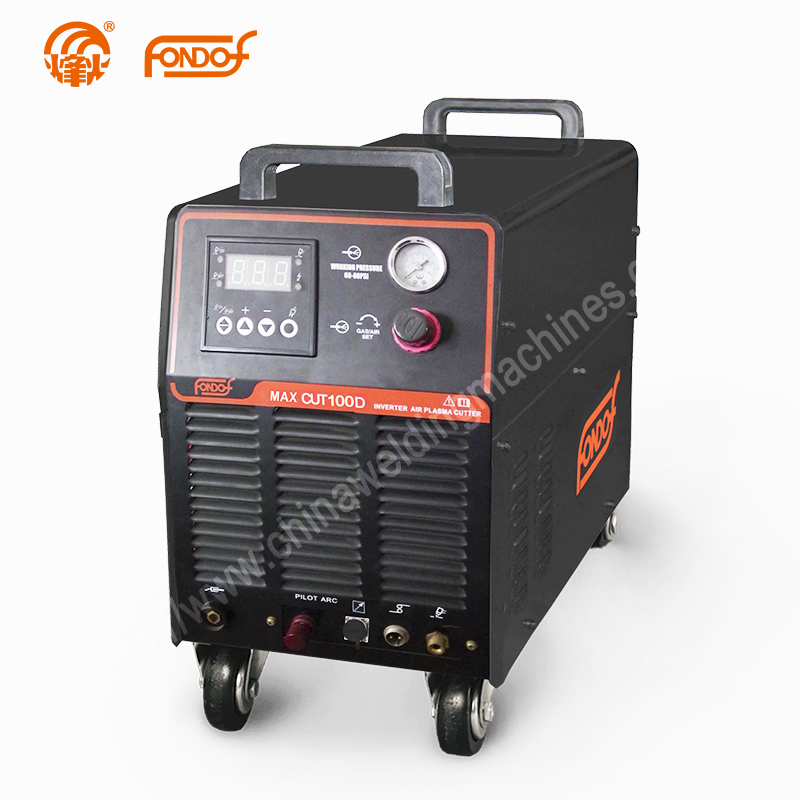- Automobiles & Motorcycles
- Beauty & Personal Care
- Business Services
- Chemicals
- Construction & Real Estate
- Consumer Electronics
- Electrical Equipment & Supplies
- Electronic Components & Supplies
- Energy
- Environment
- Excess Inventory
- Fashion Accessories
- Food & Beverage
- Furniture
- Gifts & Crafts
- Hardware
- Health & Medical
- Home & Garden
- Home Appliances
- Lights & Lighting
- Luggage, Bags & Cases
- Machinery
- Measurement & Analysis Instruments
- Mechanical Parts & Fabrication Services
- Minerals & Metallurgy
- Office & School Supplies
- Packaging & Printing
- Rubber & Plastics
- Security & Protection
- Service Equipment
- Shoes & Accessories
- Sports & Entertainment
- Telecommunications
- Textiles & Leather Products
- Timepieces, Jewelry, Eyewear
- Tools
- Toys & Hobbies
- Transportation
A Comprehensive Guide to Understanding Plasma Cutter
Plasma cutters are versatile tools used in various industries for precise and efficient cutting of metals. They utilize a high-temperature plasma arc to melt and sever metal materials, providing clean and accurate cuts. Whether you're a professional metalworker or a hobbyist, understanding how plasma cutters work and their essential components is crucial. This comprehensive guide aims to provide a thorough understanding of plasma cutters and their operation.

What is a Plasma Cutter?
A plasma cutter is a device that uses a high-velocity jet of ionized gas, known as plasma, to cut through electrically conductive materials such as steel, aluminum, and copper. It is a highly effective alternative to traditional cutting methods like sawing or oxy-fuel cutting.
How Does a Plasma Cutter Work?
A plasma cutter works by passing an electric current through a gas, typically compressed air or an inert gas like nitrogen. This electric current ionizes the gas, transforming it into a plasma state. The plasma is then forced through a small nozzle at high speeds, creating a concentrated and incredibly hot plasma arc. The intense heat of the plasma arc melts the metal being cut, while the high-velocity gas blows away the molten metal, resulting in a precise and clean cut.
Essential Components of a Plasma Cutter:
a. Power Source: The power source supplies the electrical energy required to generate the plasma arc. It provides the necessary voltage and current to maintain a stable cutting process.
b. Plasma Torch: The plasma torch is the handheld or machine-mounted tool that houses the electrode, nozzle, and other consumables. It delivers the plasma arc to the workpiece.
c. Gas Supply: The gas supply, typically compressed air or an inert gas, is responsible for creating the plasma arc and assisting in the cutting process.
d. Control Panel: The control panel allows the user to adjust various settings such as amperage, gas flow rate, and cutting speed. It provides control over the cutting parameters, ensuring optimal cutting performance.
Advantages of Plasma Cutting:
Plasma Cutting Machine offers several advantages over traditional cutting methods:
a. Versatility: Plasma cutters can effectively cut a wide range of electrically conductive metals, including steel, stainless steel, aluminum, copper, and more.
b. Speed and Efficiency: Plasma cutting is significantly faster than traditional methods, allowing for increased productivity and reduced cutting time.
c. Precision and Accuracy: Plasma cutters can achieve highly precise and clean cuts, even on intricate shapes and curves.
d. Clean Cuts and Minimal Dross: Plasma cutting produces minimal dross or slag, resulting in cleaner cuts that require less post-cutting cleanup.
e. Portability: Plasma cutters are available in various sizes and can be portable, making them suitable for on-site work or projects with limited space.
Safety Considerations:
Operating a plasma cutter requires proper safety precautions:
a. Protective Gear: Wear appropriate personal protective equipment (PPE) such as safety glasses, gloves, and flame-resistant clothing to protect against sparks, UV radiation, and heat.
b. Ventilation: Ensure proper ventilation in the workspace to remove fumes and gases generated during the cutting process.
c. Grounding: Properly ground the workpiece and the plasma cutter to prevent electrical shocks and ensure safe operation.
d. Maintenance and Inspection: Regularly inspect and maintain the plasma cutter, including checking cables, connections, and consumables, to ensure safe and efficient operation.
In conclusion, plasma cutters are powerful tools used for precise and efficient metal cutting. Understanding the working principles, essential components, advantages, and safety considerations associated with welding machine is vital for safe and effective operation. By harnessing the capabilities of plasma cutters, users can achieve accurate cuts, increase productivity, and enhance their metalworking projects.
If you are interested in sending in a Guest Blogger Submission,welcome to write for us!




Comments
0